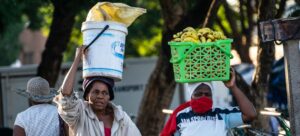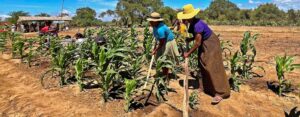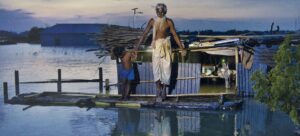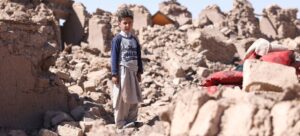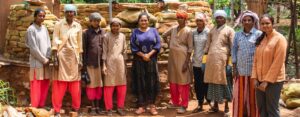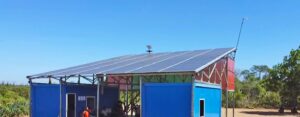Last year saw a three per cent contraction, equalling roughly $1 trillion, compared to the record high of $32 trillion in 2022.
Despite this decline, the services sector showed resilience with a $500 billion (eight per cent) increase from the previous year, while trade in goods experienced a $1.3 trillion, or five per cent, decline compared to 2022.
The fourth quarter of 2023 marked a departure from previous ones, with both merchandise and services trade stabilising. Developing countries, especially those in Africa, East Asia and South Asia, saw a return to growth.

Regional dynamics
While major economies generally saw a decline last year in merchandise trade – or the import and export of goods – there were exceptions, said UNCTAD.
Russia “exhibited notable volatility in trade statistics”, and towards the end of 2023, trade in goods grew in China (up five per cent in terms of imports) and India (five per cent growth in exports) although it declined for Russia and the European Union.
During 2023, trade performance declined in the developing world by approximately four per cent and by around six per cent in developed economies.
South-South trade, or trade between developing economies, saw a steeper decline of around seven per cent.
However, these trends reversed in the last quarter of 2023, with developing countries and South-South trade resuming growth while trade in developed countries remained stable.
Geopolitical tensions continued to impact bilateral trade, as shown by Russia reducing its trade dependence on the European Union while increasing its reliance on China. Trade interdependence between China and the United States decreased further in 2023.
Regionally, trade between African economies bucked the global trend by increasing six per cent last year, whereas intraregional trade in East Asia and Latin America lagged behind the global average.
E-waste mountain growing five times faster than recycling rate
ITU
The amount of electronic waste – or e-waste – that we produce is at least 62 million tonnes, and it’s rising five times faster than the amount being recycled.
That’s the worrying finding of the UN Global E-waste Monitor report, published on Thursday.
The report looked into the sheer volume of old phones, batteries and other tech that’s thrown away and found that all this e-waste would fill over one and a half million 40-tonne trucks – that’s about enough to form a bumper-to-bumper line of lorries around the Equator.
Only 25 per cent of e-waste is recycled
Data crunched by the UN agencies behind the report – ITU and UNITAR – also found that only around 25 per cent of e-waste in 2022 was officially recorded to have been recycled.
This means $62 billion worth of recoverable natural resources are unaccounted for, increasing pollution risks to communities worldwide.
Worldwide, e-waste is rising by 2.6 million tonnes annually, meaning that we’re on track to reach 82 million tonnes by 2030.
E-waste – any discarded product with a plug or battery – is a health and environmental hazard, containing toxic additives or hazardous substances such as mercury, which can damage the human brain and nervous system.
7,000 avoidable deaths in Europe due to COVID-19 pandemic: WHO
There were nearly 7,000 excess deaths from tuberculosis (TB) in the UN World Health Organization’s (WHO) European region during the three years of the COVID-19 pandemic, new data published on Thursday has revealed.
WHO_Europe
Based on pre-2020 estimates, the deaths would not have occurred if TB diagnosis and treatment efforts had not been disrupted, WHO said.
The revelation comes via the latest TB surveillance and monitoring report from WHO/Europe and the European Centre for Disease Prevention and Control (ECDC), released annually in anticipation of World TB Day, which takes place on 24 March.
“Our latest report reveals a heartbreaking, entirely preventable situation; people affected by TB were not protected during the pandemic and 7,000 needlessly lost their lives because of disruptions to TB services,” said Dr. Hans Kluge, WHO Regional Director for Europe.
“The report also reveals another evolving, preventable tragedy: the prevalence of drug-resistant TB continues to rise,” he said. “We urge national authorities to strengthen TB testing programmes, diagnose promptly and apply the latest WHO guidelines.”
According to ECDC Director Dr Andrea Ammon, “we still have a long road ahead of us for meeting the TB elimination targets” in the aftermath of COVID-19.
“Timely strengthening of prevention, testing and treatment are key elements in fighting TB, and any delays are translated into further suffering and death. Countries must act now,” she said.
